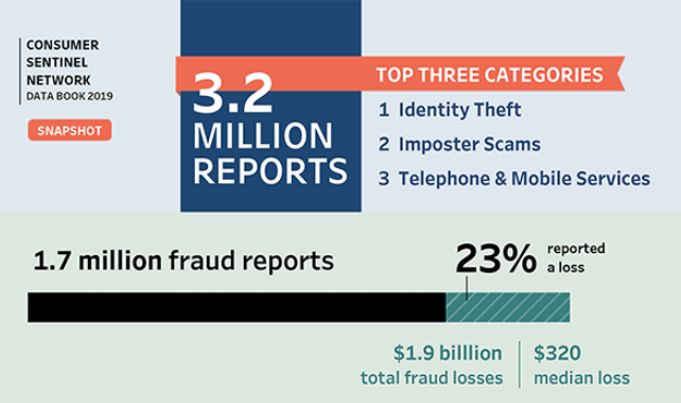The Federal Trade Commission just announced the most common types of consumer complaints that it received in 2019. Of the 3.2 million complaints that the FTC received, identity theft and imposter scams were by far the most common.
Here's a list of the top fifteen areas where the FTC received complaints:
- Identity theft (20.33%)
- Imposter scams (20.23%)
- Telephone and mobile services (5.83%)
- Online shopping and negative review (5.43%)
- Credit bureaus, information furnishers, and report users (5.16%)
- Banks and lenders (4.67%)
- Debt collection (4.22%)
- Prizes, sweepstakes, and lotteries (3.90%)
- Auto related (3.6%)
- Internet services (2.46%)
- Health care (1.85%)
- Credit cards (1.69%)
- Television and electronic media (1.15%)
- Travel, vacations, and timeshare plans (1.08%)
- Foreign money offers and counterfeit check scams (.97%)
The FTC receives these complaints through the Consumer Sentinel Network, which compiles the data and makes it available to law enforcement in the United States and around the world.

This alert provides general coverage of its subject area. We provide it with the understanding that Frankfurt Kurnit Klein & Selz is not engaged herein in rendering legal advice, and shall not be liable for any damages resulting from any error, inaccuracy, or omission. Our attorneys practice law only in jurisdictions in which they are properly authorized to do so. We do not seek to represent clients in other jurisdictions.

